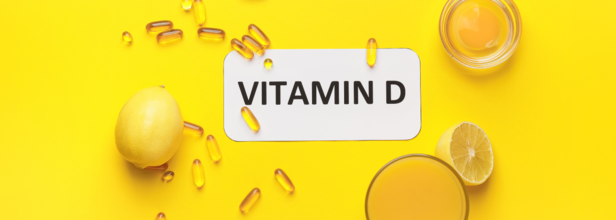
You Can Prevent ‘Summer Dehydration’ By Enjoying These 9 Coolers
With summer right ahead, it is important to make slight changes to your lifestyle. One of the first things you must change is your diet. It is essential to add more hydrating foods and drinks to your daily routine and cut out ingredients like soda, salt and sugar as they can be dehydrating and detrimental to your health.
Many people assume that being on a health spree means being devoid of tasty foods and sweets. It has been noted by many how sweet dishes have a lot more calories and sugar content, while lacking healthy ingredients. So, can one make healthy dishes that contain a less artificial sugar? One can achieve this goal by adding other ingredients that are naturally sweet and full of nutrition.
Summer Cooling Foods You Can Try
If you love sweets, it's easy to consume too much sugar. However, you can enjoy tasty desserts while staying healthy as well. Adding fruits, whole grains, nuts, and seeds to your dessert boosts vitamins, minerals, and antioxidants, making them good for you. Here are 9 simple dishes that are nutritious and perfect for when you are craving something sweet and cold.
Frozen Mango, Kiwi, Raspberry Fruit Pops
These frozen fruit pops are perfect for cooling down on a hot day. Mango, kiwi, and raspberries provide a good dose of vitamin C. You can skip the added sugar for a tarter treat.
Roasted Honey and Cinnamon Peaches
Roasted peaches, sweetened with honey and cinnamon, are a delicious, guilt-free treat. Served over Greek yogurt, it adds creamy richness. It is a great way to enjoy farm-fresh peaches.
Watermelon Cucumber Cooler
This cooler combines watermelon and cucumber, both high in water content, for a hydrating and subtly sweet drink. Blend watermelon, cucumber, lime juice, and mint for a refreshing summer beverage. Serve over ice with a lime slice for a cool treat.
Cherry Coconut Yogurt Bites
These frozen yogurt bites are perfect for hot days. They’re made with cherries, Greek yogurt, and coconut, and taste like a chilled cheesecake. Cherries have antioxidants and vitamin C, making this a healthy and refreshing treat.
Chocolate Peanut Butter Avocado Pudding
Don't let the avocado fool you; it creates a smooth, creamy pudding while adding healthy fats. This vegan, gluten-free, and sugar-free pudding is perfect for various dietary needs.
Sparkling Lemonade
Enjoy a healthy twist on lemonade with this low-sugar sparkling drink. Mix sparkling water with regular water, fresh lemon juice, and ice. Add natural sweetener if needed. This refreshing beverage is full of flavor without the added sugar.
Cocoa Coconut Chia Pudding
Chia seeds are full of fiber, protein, and omega-3s. Mixed with cocoa powder, they make a delicious and healthy pudding. It’s vegan and easy to make, giving you a nutritious and tasty dessert or snack.
Peanut Butter, Raspberry, and Almond Butter Cups
This healthy version of peanut butter cups adds almond butter and raspberries. Almond butter gives you protein and fiber, while raspberries add even more fiber. It’s a rich and satisfying treat that’s also good for you.
Iced Matcha Latte
Start your day with an iced matcha latte, full of antioxidants and nutrients like ECGC and vitamin C. Matcha provides steady energy without a crash, thanks to L-theanine. Mix matcha with water, dairy-free milk, and ice for a healthy, refreshing drink.

Credits: Canva
Why Do The Japanese Drink Vinegar Before Their Meals?
Every culture has a particular thing that they do, a ritual that they ensure to practice throughout. It could be any ritual, an eating ritual, a drinking ritual, which becomes a habit. Most of the time they have benefits, but are unknown to people as they never question it. There is one such drinking ritual that the Japanese people follow. It is the habit of drinking vinegar before every meal.
But, why does this happen?
The Japanese people have made it a habit to drink vinegar as a health tonic. Not only do they use it as a cooking ingredient, but also as a tonic right before they sit down to consume meal. They believe that it can help them with everything in their body, including their glowing skin to digestion.
Let us find out if there is any truth to this?
Experts believe that drinking vinegar, especially if consumed before meals is a practice which can be seen in many cultures, and Japan is one of them. It has many health benefits.
Vinegar contain acetic acid that helps in increasing the production of digestive enzymes and stomach acid. This can also help break down food more effectively. There are studies too that show that acetic acid can improve insulin sensitivity and reduce blood sugar spikes that happens right after you consume your meal.
There are other benefits to drinking vinegar. It also helps to boost your metabolism and promote weight loss. Research also suggests that acetic acid can increase fat burning and reduce fat storage.
Experts also believe that vinegar can improve heart health. How does it do this? It can lower blood pressure, cholesterol levels and triglycerides.
How Much Vinegar Do The Japanese Drink?
On an average, a Japanese person drinks 15 to 30 ml, which is around 1 to 2 tablespoons of vinegar. They dilute it in water right before the meal.
What Do The Studies Say?
The US Department of Agriculture states that vinegars contain a substance called mother which has strands of proteins, enzymes, and friendly bacteria. These are mostly found in organic, unfiltered apple cider vinegar. They have a murky appearance.
As per the National Library of Medicine's research paper, titled Antimicrobial activity of apple cider vinegar against Escherichia coli, Staphylococcus aureus and Candida albicans; downregulating cytokine and microbial protein expression, vinegar can also help kill pathogens, including strains of bacteria.
People have also traditionally used vinegar for cleaning and disinfecting, treating nail fungus, lice, warts, and ear infections.
In fact, Hippocrates, the father of modern medicine, used vinegar to clean wounds more than 2,000 years ago.
A 2021 study Antibacterial apple cider vinegar eradicates methicillin resistant Staphylococcus aureus and resistant Escherichia coli, also reveals that vinegar can be used as a great food preservative, as it inhibits bacteria like E.coli from spoiling food. This is why in Japanese cuisine, vinegar is also used as cooking ingredient.
As per a 2019 clinical trial, titled The effect of apple vinegar consumption on glycemic indices, blood pressure, oxidative stress, and homocysteine in patients with type 2 diabetes and dyslipidemia: A randomized controlled clinical trial, vinegar consumption could have beneficial effects on the glycemic index and oxidative stress in individuals with diabetes and dyslipidemia. This could help lower blood sugar levels and manage diabetes.

Credits: Canva
What Role Does Vitamin D Play In Your Gut Health?
Vitamin D is known for its role for maintaining strong bones and teeth. However, its benefits can be extended beyond bone health and skeletal health. It is an essential nutrient that is involved in several bodily functions, including immune support, blood sugar regulation, and gut health.
A research conducted through the MetA-Bone Trial by the Washington Post, focused on how a dietary fiber supplement can impact bone mass in children and adolescents. It is in this process that the team uncovered a surprising connection between vitamin D and gut health.
How Was The Research Conducted?
The research examined 213 children and adolescents from South Florida, who were primarily Hispanic and Blacks. Their vitamin D levels were measured before they started taking the supplement. 68% of them had suboptimal vitamin D levels.
South Florida has abundant of sunshine around the year, the finding was unexpected, in fact, concerning. While vitamin D is present in some foods, most of it can be consumed through sunlight. In fact, most Americans rely on sunlight for their vitamin D intake. This deficiency is alarming for children and adolescents who are approaching their puberty, which is a period of rapid physiological change and includes bone mass development.
The Many Roles of Vitamin D
Vitamin D plays a crucial role in different bodily functions. Vitamin D receptors are present in several organs which serve as docking stations for the vitamin and allows it to exert its effects on the skin, intestines, bones, parathyroid gland, immune system and pancreas.
One of vitamin D’s primary functions is regulating calcium levels in the body. This regulation is essential not only for bone formation and maintenance but also for the proper functioning of the nervous system. Vitamin D also contributes to cell differentiation, the process by which cells become specialized to perform specific tasks. Additionally, it plays a role in insulin secretion, blood pressure regulation, muscle repair, immune function, and nutrient absorption.
How Can Vitamin D Support Your Gut Health?
Your gut system is home to many vitamin D receptors and so it can contribute to better calcium absorption and a stronger intestinal barrier.
It is this barrier that allows the intestines to absorb nutrients while keeping harmful bacteria and toxins out. It consists of intestinal cells re connected by proteins which are called the tight junctions. Vitamin D receptors also help produce these tight junctions and ensure the integrity of the gut lining.
Research indicates that a deficiency in vitamin D can weaken these receptors, reducing the strength of the intestinal barrier. A compromised barrier allows substances from the gut to enter the bloodstream, leading to inflammation. This breakdown has been associated with various health conditions, including liver disease, Type 1 diabetes, obesity, and gastrointestinal disorders such as celiac disease, inflammatory bowel disease, and colon cancer.
As part of our study, we also assessed the intestinal barrier strength of our participants and compared it with their vitamin D levels. Our findings revealed that children with suboptimal vitamin D levels had a higher risk of compromised gut health. Even among otherwise healthy children, low vitamin D levels could potentially increase the risk of chronic diseases at an early age.

Image Credits: Canva
Can Homeopathy Really Detox Your Body? Expert Weigh In
Detoxification is the body's natural cleansing process of eliminating dangerous toxins that have built up from environmental toxins, poor diets, and stress. It cleanses the blood, liver, and other organs involved in the process of waste elimination. While mainstream detoxing processes usually consist of rigid diets, fasting, or colon cleanses, homeopathy offers a softer and holistic means of stimulating the body's own cleansing processes.
The new lifestyle has contributed immensely to changed eating patterns, resulting in increased chronic conditions of obesity, diabetes, and heart diseases. Toxins penetrate the body in the form of processed foods, alcohol, pollution, and stress. They become part of the blood and lymphatic system, slowly accumulating in essential organs such as the liver, kidneys, and intestines. These toxins, if not efficiently eliminated, can result in fatigue, gastrointestinal discomfort, skin ailments, and compromised immunity.
The liver is the primary organ for detoxification. Through the process of metabolism, the Phase 1 detoxification of the liver (also referred to as the P450 enzyme system) creates free radicals, which can cause tissue damage if there are not adequate antioxidants within the body. This is why dietary or supplement replenishment of antioxidants is important in order to detoxify efficiently.
Can Homeopathy Naturally Detox?
As opposed to traditional detox routines that are hard on the body, homeopathy acts on the cellular level to complement the body's inherent capacity for detoxification. According to Dr. Manju Singh, Homeopathy expert, homeopathy does not cleanse but instead 'drains' toxins, and that it activates the body's defense mechanisms, allowing toxins to be removed effectively without an interruption in overall health.
Homeopathic Remedies for Detoxification
Nux Vomica: Perfect for detoxifying after binge drinking, caffeine, or fast foods. Alleviates bloating, nausea, and stomach discomfort.
Lycopodium: Facilitates liver function and eliminates digestive problems such as gas, bloating, and acidity.
Sulphur: Famous for purifying the skin, it clears acne, eczema, and rashes due to toxin accumulation.
Berberis Vulgaris: Maintains kidney health by facilitating the elimination of toxins through urine, keeping kidney-related diseases at bay.
Chelidonium Majus: Supports liver functioning, digestion, and fat digestion without any effort.
Why Lifestyle Plays an Important Role in Detoxification?
Though homeopathy is a strong supporter of detoxification, healthy lifestyle also plays a similar role. The inclusion of the following habits can make the body most effective in natural toxin removal:
1. Hydration
Adequate intake of water is essential to flush out toxins in the form of urine and sweat. Herbal teas and fresh juices can also aid in hydration and detoxification.
2. Nutrient-Dense Diet
A well-balanced diet that includes plenty of fruits, vegetables, whole grains, and fiber feeds the body while encouraging toxin elimination. Cutting down on processed foods, alcohol, and excessive caffeine consumption further aids detoxification.
3. Consistent Physical Exercise
Exercise increases blood circulation, strengthens digestion, and activates the lymphatic system, which helps remove toxins through sweat and breath.
4. Stress Control
Ongoing stress may lead to increased toxin accumulation in the body. Stress levels can be controlled through deep breathing techniques, meditation, and yoga, which further benefit overall health.
5. Reducing Chemical Exposure
Restricting exposure to environmental toxins, including air pollution, artificial cleaning agents, and pesticides, reduces the toxin load on the body.
Homeopathy may provide a holistic and natural means of detoxification, removing toxins from the body without harm while restoring equilibrium. A visit to a qualified homeopathic practitioner guarantees a personalized detox program suited to individual needs, making the process safe, effective, and sustainable.
Dr. Manju Singh, B.H.M.S., Homeopathy Consultant and senior homeopathic medical officer at SBL Global, India
© 2024 Bennett, Coleman & Company Limited

